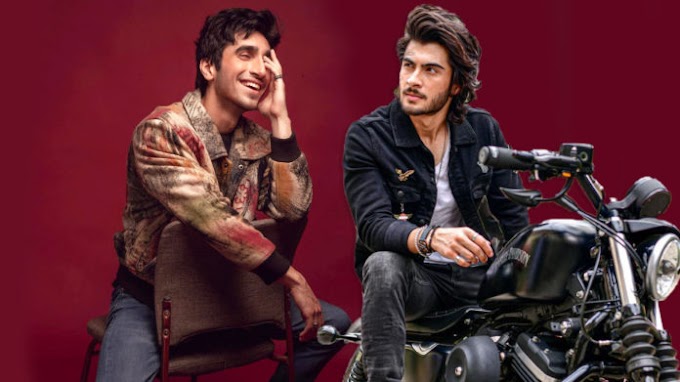
Spotify and the potential for focused digital recording advertisements
Generally few of us are hoping to enroll staff utilizing ZipRecruiter, begin a mailing list with MailChimp, or set up a site with Squarespace.
But then, on the off chance that you've been tuning in to mainstream digital recordings over the previous year or more, you'll likely have heard those three organizations promoted at you, on numerous occasions.
It's interested: podcasting has been around longer than YouTube, but then it is as yet considered a "rising" medium. This is much appreciated, to some extent, to publicizing techniques that share all the more practically speaking with the past times of communicate instead of the new period of the web. Today, publicizing on digital broadcasts is one-measure fits-all, or, best case scenario, one-estimate fits-many.
That is the reason Spotify's declaration on Wednesday that it is procuring two noteworthy web recording organizations ought to be viewed as a pivotal turning point in the moderate development of the humble digital recording.
Its interest in web recordings will mean Spotify can join its advancements to a) truly help individuals discover more digital recordings they will like, and b) embed exceptionally focused on promotions on the fly, raising the winning potential for webcasts to the following dimension.
While developing rapidly, advertisement deals inside the US podcasting industry are right now just evaluated to be worth around $659m per year by 2020, as indicated by a review from the Internet Advertising Bureau. For setting, the New York Times simply declared only it made $709m from its computerized contributions in 2018. Google and Facebook made a consolidated $50bn in three months.
Sound publicizing needs to inspire more brilliant if it's to profit. There have been a few endeavors to target promoting in web recordings: Panoply, for instance, utilizes information from crowd examination firm Nielsen to more readily target publicizing over its system.
This, be that as it may, isn't as granular as it could be - it's taking a (genuinely not too bad) punt on specific shows having particular kinds of audience, and hence specific sorts of interests. Others for the most part use topography to tailor promotions - giving the UK something other than what's expected to the US. Or on the other hand, inside the US, offering distinctive changes for West Coast and East Coast.
In any case, think about that against what it resembles utilizing whatever is left of the web, where advertisements know whether you're in the market for another pair of shoes, and you can perceive how podcasting is only touching the most superficial layer.
'Creeped out'
Enter: Spotify. It's as of now the second greatest digital broadcast stage in the US, in spite of not by any means setting off to that much exertion to push it to clients inside its application.
What's especially ground-breaking is Spotify's capacity to coordinate clients with webcasts a similar way it does (creepily) well with new music. There are 16,000 distinct "signals", the organization says, that assistance it do that. Those equivalent signs will mean Spotify convey the acquiring potential for digital broadcasts to the following dimension: on the off chance that you tune in to a wellbeing and wellness playlist, you're probably going to react well to webcast promotions offering wellness gear, maybe.
Yet, then again, I understand what's to come I'm depicting here sounds rather horrendous. Envision having a web recording on in the vehicle, with your companions making a decision about you dependent on the publicizing that is being played out. "In case you're experiencing peevish entrail disorder, you ought to try..."
And keeping in mind that focused promotions have upset web based publicizing, it may not be as compelling in a webcast, where best shows have needed to embrace strategies that make the advertisements nearly as charming as the digital recording itself.
On political webcast Pod Save America, for instance, every scene starts with a moment of riffing between the hosts about ZipRecruiter - the running joke being that an apparatus for rapidly employing substitution staff individuals may be useful to a specific President.
This sort of credibility is an incredible quality for the mechanism of podcasting, and any endeavor to utilize mechanized techniques rather could have audience members skirting them as fast as would be prudent - or, for Spotify's situation, getting to web recordings on an alternate stage by and large, as proposed by Marco Arment, the maker of digital broadcast listening application Overcast.
"Enormous podcasters: I get notification from your audience members consistently that they're creeped out by your area explicit unique advertisements," he tweeted.
"On the off chance that there was any uncertainty, let me guarantee you: your audience members loathe [dynamic promoting insertion]. Keep it up and they'll get irritated at the whole medium, and after that we'll all lose."
In purchasing Gimlet Media, Spotify will expedite board individuals who comprehend this delicate dynamic personally. In reality, you can find out about how the Gimlet group pondered how best to satisfy the two promoters and audience members in early scenes of the first webcast, StartUp.
As it increase its webcast business, Spotify can take in exercises from what's worked for promoters somewhere else. Be that as it may, there is still a great deal of an unknown area here. We basically don't have the foggiest idea what audience members will be set up to endure. CEO Daniel Ek should work out how to dial up monetisation, without transforming podcasting into business radio.







